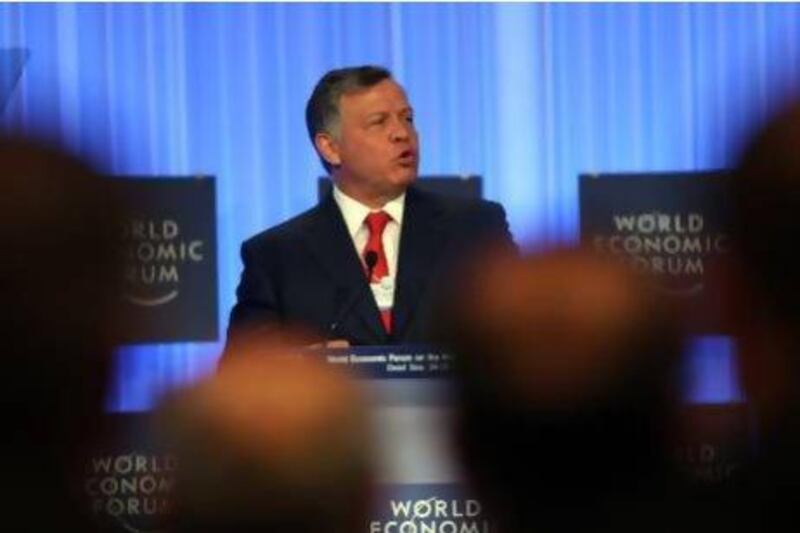Reviving economic growth in the Arab region should be the priority to aid the transition from instability, the deputy managing director of the IMF said yesterday.
Min Zhu also called upon the international community to make good on billions of dollars in support funds pledged more than two years ago to aid Arab Spring nations.
"Growth still remains the key challenge for the region," he said at the World Economic Forum on the Middle East and North Africa in the Dead Sea, Jordan, which got under way yesterday. "We need a macro stability policy, we need a fiscal policy to carefully support growth. For example, the region is spending 9.5 per cent of GDP on subsidies. If we do energy reform we can save a lot of money for public expenditure to support growth and enhance jobs. We need fiscal policy to support spending on education and health to support long-term growth."
Growth in the region would drop to about 3 per cent this year, down from about 4.8 per cent last year, he said. Political instability in the region, weakening demand for oil in China and continuing weakness in Europe were buffeting the region, he added.
The IMF last week forecast growth of 3.1 per cent for this year, down from 4.7 per cent last year, and "far below" the level required to tackle high unemployment.
Joblessness, one of the many seeds sowing the first shoots of Arab Spring unrest in late 2010, remains the key challenge with nearly a quarter of youths out of work.
With the right approach to spending and economic reform, the region had the potential to move back to growth of 4.5 to 5 per cent every year, said Mr Zhu.
He also supported pleas from other delegates for a flowing of international funds pledged to Arab Spring nations.
At a May 2011 summit in France, leaders of the Group of Eight major nations pledged some US$40 billion of aid, mostly cheap loans to Tunisia and Egypt. GCC states have also pledged billions of dollars in funds. But little has flown to date beyond investments by Qatar, the UAE and other GCC states in banking and other sectors.
"We need a large orientated effort to channel resources and know-how in this region, said Ibrahim Dabdoub, the chief executive of National Bank of Kuwait. "We need an economic stabilisation fund. In many countries you have fiscal and foreign account deficits which have widened."
The IMF estimates US$4 billion in external funding is needed this year to support Arab Spring countries undergoing transitions.
Abdullah Abdulkarim Hamdan Ensour, the prime minister of Jordan, said a so-called Marshall Plan would help to support stability.
"We have to look at the region as a whole," he said. "We cannot have countries that are very well supported and those that are lagging behind. Stability in the region is a climate and cannot be confined to a piece of the Middle East without the whole region enjoying the same standards of living."





